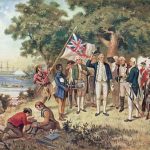North Korean leader Kim Jong Un has made a rare visit to Russia, traveling by armored train to meet with President Vladimir Putin.
The meeting between isolated leaders is driven by their mutual need for support in their standoffs with Western countries.
Kim is expected to seek economic aid and military technology for North Korea, while also potentially providing munitions for Russia’s war in Ukraine. This presents a chance for Kim to bypass United Nations sanctions and diplomatic isolation, while Putin could replenish ammunition supplies depleted by the conflict in Ukraine.
However, any arms deal with North Korea would violate existing sanctions, which Russia has previously supported.
Kim’s train stopped at Khasan, a Russian station near the North Korean border, where he was greeted by Russian officials. Kim emphasized the importance of North Korea’s relationship with Moscow during this visit, marking his first foreign trip since the COVID-19 pandemic began.
The details of their discussions and agreements reached remain undisclosed at this time.












I find this very interesting.